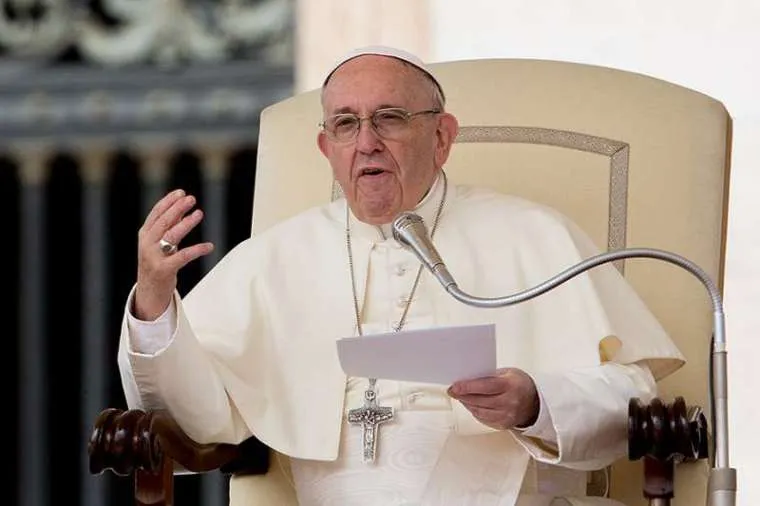Even if civil unions might be chosen by people other than same-sex couples, like siblings or committed friends, the CDF said that homosexual relationships would be “foreseen and approved by the law,” and that civil unions “would obscure certain basic moral values and cause a devaluation of the institution of marriage.”
“Legal recognition of homosexual unions or placing them on the same level as marriage would mean not only the approval of deviant behaviour, with the consequence of making it a model in present-day society, but would also obscure basic values which belong to the common inheritance of humanity,” the document concluded.
The 2003 CDF document contains doctrinal truth, and the positions of John Paul II and Benedict XVI on how best to apply the Church’s doctrinal teaching to policy questions regarding the civil oversight and regulation of marriage. While those positions are consistent with the long-standing discipline of the Church on the issue, they are not themselves regarded as articles of faith.
Some people have said what the pope taught is heresy. Is that true?
No. The pope’s remarks did not deny or call into question any doctrinal truth that Catholics must hold or believe. In fact, the pope has frequently affirmed the Church’s doctrinal teaching regarding marriage.
(Story continues below)
The pope’s apparent call for civil union legislation, which seems to be different from the position expressed by the CDF in 2003, has been taken to represent a departure from a long-standing moral judgment that Church leaders have taught supports and upholds the truth. The CDF document said that civil union laws give tacit consent to homosexual behavior; while the pope expressed support for civil unions, he has also spoken in his pontificate about the immorality of homosexual acts.
It is also important to note that a documentary interview is not a forum for official papal teaching. The pope’s remarks were not presented in their fullness, and no transcript has been presented, so unless the Vatican offers additional clarity, they need to be taken in light of the limited information available about them.
We have same-sex marriage in this country. Why is anyone talking about civil unions?
There are 29 countries in the world that legally recognize same-sex “marriage.” Most of them are in Europe, North America, or South America. But in other parts of the world, the debate over the definition of marriage is just getting started. In parts of Latin America, for example, the redefinition of marriage is not a settled political topic, and Catholic political activists there have opposed moves to normalize civil union legislation.
Opponents of civil unions say they are usually a bridge to same-sex marriage legislation, and marriage campaigners in some countries have said they are concerned that LGBT lobbyists will use the pope’s words in the documentary to advance a pathway to same-sex marriage.
What does the Church teach about homosexuality?
The Catechism of the Catholic Church teaches that those who identify as LGBT “must be accepted with respect, compassion, and sensitivity. Every sign of unjust discrimination in their regard should be avoided. These persons are called to fulfill God's will in their lives and, if they are Christians, to unite to the sacrifice of the Lord's Cross the difficulties they may encounter from their condition.”
The Catechism elaborates that homosexual inclinations are “objectively disordered,” homosexual acts are “contrary to the natural law,” and those who identify as lesbian and gay, like all people, are called to the virtue of chastity.
Are Catholics bound to agree with the pope on civil unions?
Pope Francis’ statements in “Francesco” do not constitute formal papal teaching. While the pope’s affirmation of the dignity of all people and his call for respect of all people are rooted in Catholic teaching, Catholics are not obliged to support a legislative or policy position because of the pope’s comments in a documentary.
Some bishops have expressed that they are awaiting further clarity on the pope’s comments from the Vatican, while one explained that: “While Church teaching on marriage is clear and irreformable, the conversation must continue about the best ways to reverence the dignity of those in same–sex relationships so that they are not subject to any unjust discrimination.”








